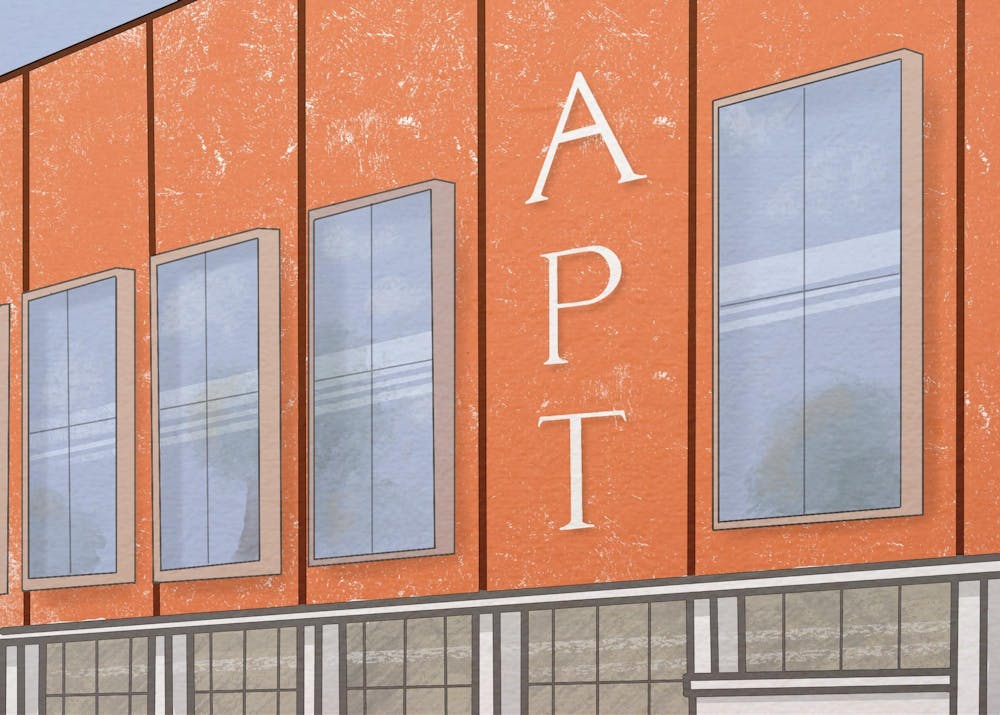Editor’s note: This article is a humor column
A memo from the U.S. Department of Justice, mistakenly sent to Nau Hall Friday instead of Board of Visitors member John Nau III, has revealed the shocking truth about the University’s future Center for the Arts. According to the memo, the center was never intended to host galleries or performances — instead, in a move aligning with national trends of defunding arts and culture, it will serve as a state-of-the-art house for the Alpha chapter of the new Alpha Rho Tau fraternity.
On Sept. 11, the Board triumphantly approved the design for the 220,000-square-foot Center on Ivy Road — a facility meant to house the new Fralin Museum and the Kluge-Ruhe Aboriginal Art Collection, in addition to the Tessa and Richard Ader Performing Arts Center and the University’s department of music. Students and faculty largely supported this move, an expected outcome given the University community’s recent history of complete, total and unequivocal agreement with the Board’s decisions.
“For once, I thought the Board actually implemented the Academical Village’s values of a learning environment that extends beyond the classroom, instead of just using it as the backdrop for their infamous meetings,” second-year College student Artiestu Dent said.
“I was like, damn guys, good job. I literally can’t make fun of this one.” Dent said.
However, that same week, an anonymous student employee at Nau Hall discovered the Justice Department’s memo, labeled “Nau, U.Va.” in a random drawer stuffed between a stack of abandoned Contracted Independent Organizations flyers.
The misdelivered letter turned out to be part of a federal remediation plan. According to the document, the fraternity house construction marks “Step Six” of the plan. The passage above it reads “Step Five — Remove Jim,” complete with a neat little box checked off next to the line and a miniature skull dotting the i. Directly beneath it comes strict instructions for the Board to “maintain the facade of arts investment until Step Six is activated to avoid institutional backlash,” making clear that the promised arts complex was never meant to exist at all, only to disguise the fraternity house plan until construction begins.
Step Six then details a “facilities blueprint” for the Center. The original Performing Arts Center is instead described as “America’s largest chapter room with alcohol-resistant flooring.” The music department’s supposed wing was slated from the onset to be a “themed mixer annex” and the spaces where the Fralin’s galleries were supposed to be are designated as “foam pit rooms complete with industrial-grade fog machines.”
The Justice Department memo also mentions “removing the last segment of WOKE and DEI” from the University, describing how art museums like the Fralin “force students to reflect on oppression and brushstrokes when they could be learning about brotherhood.”
According to the memo, some of the Fralin’s historical exhibits and the Kluge-Ruhe Collection “make visitors feel guilty about history,” while fraternity houses provide the “healthier alternative of feeling guilty only the next morning.”
Finally, the letter ended with a line about the expansion of Greek Life being “a future-focused beacon of promise and hope across the country.”
News of the memo provoked outrage from faculty members, many of whom had been anticipating the opening of the Center. Art History Prof. Colin Palette lamented that years of careful curatorial planning were now wasted.
“We were preparing a landmark exhibition on modernism,” Palette said. “Instead, I’m told the walls will display a permanent installation of empty drink cans?”
Likewise, many students have protested the news of the memo.
“This was supposed to be a once-in-a-generation cultural hub,” fourth-year College student and Student Council Arts Committee chair Libby Arts said.
“It’s hard to argue for shared governance when the DOJ literally turned the future of arts at U.Va. into a Rugby Road basement with better lighting,” Arts said.
Not all community members were upset over the changes. Recent University alumnus Monty Cello expressed optimism for the new house.
“U.Va. doesn’t need any more culture or history, students get that from classes,” Cello said. “Museums like the Fralin are overrated anyway. I would know — I went to a museum when I was like 6.”
Board members refused to comment on the leaked memo. However, according to an anonymous source, billionaire beer baron Nau III was recently seen wedged behind the pillars outside the Rotunda’s basement, making a phone call about reacquiring Silver Eagle Beverages. The source reported that Nau III said to the person on the other end,
“It’s time to ramp up production of our Busches.”







